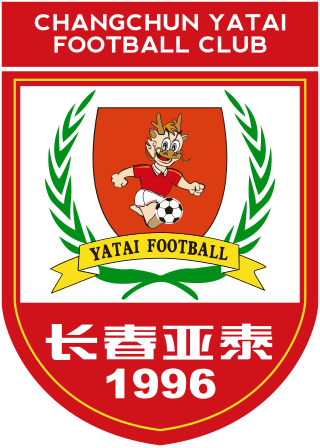History
Ancient
The ancient game of cuju was played by both adults and children. [1]
Start of modern rise (c. 1980 - 2012)

Chinese youth football rose to political prominence under the leadership of Deng Xiaoping, who pursued an open door policy, which allowed for an increase in western influence within the country. [2] Similarly, the introduction of the 5-day work week boosted football interest due to the ensuing activity gap. Officials saw the potential financial gains that were to be made from football as a major international sport, and basic reform began in the 1980s. Concerning youth football, Deng began to push the importance of early education in January 1979, as he took control of the physical education commission. The system was characterized by a traditional pyramid structure that featured specialized sports schools and professional teams but lacked sufficient grassroots initiatives. [3]
Throughout the 1980s, youth football in China saw a huge boom – but this was generally surface-level and short-lived. Initial successes were seen internationally, but this was dampened following suspicion surrounding success in the 1985 FIFA World Youth Championship. The CFA did strict testing of the bone age of youth players and found an excessive number of cases of age fraud within youth football. For example, 120 football players in Wuzhou alone had bone ages exceeding their claimed biological age. Within this time frame, the 5.19 Incident had just taken place when 80,000 football fans rioted in Beijing over China's third loss in the World Cup qualification. Within the context of the one-child policy, poor social security, and subpar education within sports schools, parents became increasingly hesitant to push their children into youth football as a result of the high elimination rate of professional football. Similarly, the initially ambitious U15 Jianlibao youth talent team, founded in 1992, was funded by the CFA to go to Brazil for training but consequently received no training from Brazilian coaches or matches with other teams in their first two years, making the trip futile. [4]
Despite a spike in interest in the 1980s, the number of youth football players in China fell from 650,000 in 1995 to a mere 13,524 in 2008. [5]
Xi era (2012 - present)

Xi Jinping has been very vocal about the importance of growing youth football and has been a driver of football reform since he became General Secretary in 2012. Xi is known to be an avid football fan. On a visit to Germany in 2014 to observe a Chinese youth development team, Xi said that "I have confidence in you, in your generation. I hope you will become outstanding football players in the future". [6] Visiting football stadiums and matches has been a common theme of Xi's foreign visits and he views it as an integral part of China's future. [6]
In addition, there has been a selection of policy initiatives implemented by the Chinese government to curtail the influence of foreign players within the CSL. [7] this initiative aims to promote the CSL as an avenue for local Chinese football talent rather than as a commercial project which it has recently been viewed as. Due to the previous system, there has been a lack of depth within professional squads, and this aims to provide a direct avenue for professional football from the youth system.
2015 football reform plan
In 2015, the Chinese government introduced the Football Reform Plan. [8] This initiative has three goals:
- By 2020, build 20,000 specialist football schools with 70,000 new football pitches producing between 30-50 million football-playing school children;
- By 2030, the 20,000 schools to become 50,000 schools, with China's men's team becoming one of the highest-ranked teams in Asia and the women's team be one of the highest-ranked in the world;
- By 2050, China will become a football superpower within FIFA's top 20 teams, hosted and won a World Cup. [7]
As a part of the Reform Plan, the set-up of domestic football in China was also changed. The Chinese Football Association (CFA) was reformed and given autonomy by removing the control that the General Administration of Sport (GAS) used to have. In addition, the structure and management model of professional football in China was also reformed, focusing on rooting out corruption and gambling rings that had existed in the past.
A particular focus has been placed on youth football development as the primary way to develop football in China. To facilitate this, the government has enacted specific initiatives targeting the growth of the youth game. Local governments have been instructed to promote the popularization of football on campus. The Ministry of Education has made football compulsory in physical education. [6] Additionally, there has been a focus on the early identification of talent and integration through all game levels.









